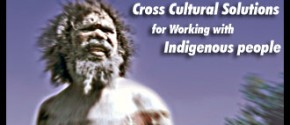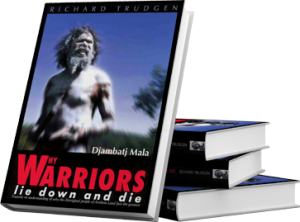Many Aboriginal people are struggling in mainstream education because they do not speak English as their first language. Some speak an Aboriginal form of English, but this is not mainstream English. Language needs to be taken seriously in order for everyone to be given equal opportunity to think and decode in their first language.
European languages have been working together with English for over two thousand years. Asian languages such as Chinese and Japanese have been working together with English for around 400 years. Pacific Island languages have a 180 year relationship with English. However Indigenous languages such as Yolngu Matha have only an 80 year relationship and there is still no English-Yolngu Matha dictionary to date.
A young Spanish student came to volunteer in Nhulunbuy in the Northern Territory.
“How do you cope with English?” Why Warriors CEO, Richard Trudgen, asked her.
“I’ve got a good dictionary,” she said.
“How often do you use it?”
“At least once or twice a day.”
“Do you know that Yolngu kids who go to Nhulunbuy high school don’t have a dictionary at all?” said Richard.
“How do they cope?!” she exclaimed.
“They don’t. They drop out.”
Acknowledgement of the importance of language, and funding for the development of dictionaries will allow Aboriginal people the same opportunities to learn in Australia.
_________________
Watch the full story on our Q&A video here.
We are building our online dictionary for Yolngu Matha-English words and concepts on Djambatjmarram here – learn some of these hard words and have a look around. What do you want to learn about?



